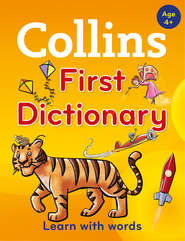
Полная версия:
Collins First Dictionary

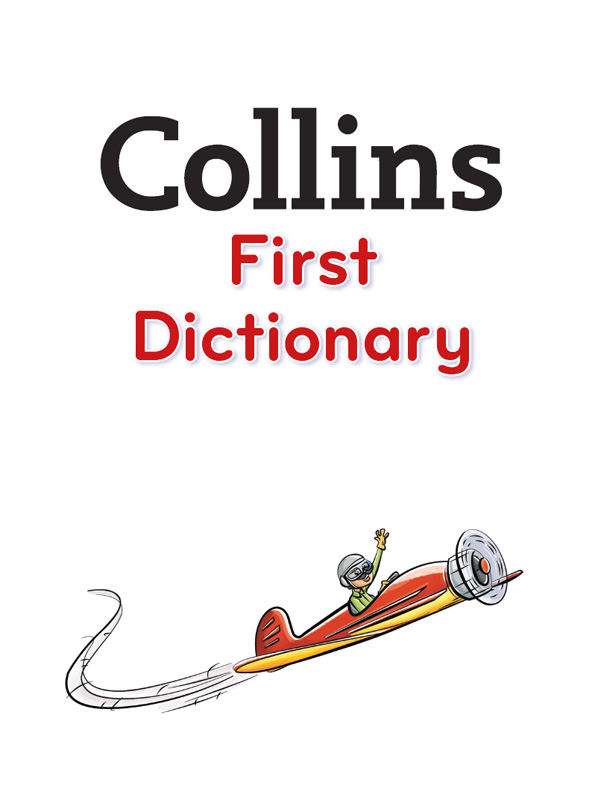
Contents
Cover
Title Page
How to find a word in this dictionary
Features of this dictionary
How words work
Aa
Bb
Cc
Dd
Ee
Ff
Gg
Hh
Ii
Jj
Kk
Ll
Mm
Nn
Oo
Pp
Rr
Ss
Tt
Uu
Vv
Ww
Xx
Yy
Zz
Index
Copyright
About the Publisher
How to find a word in this dictionary
Think of the first letter in the word you want to look up. Once you know this, there is more than one way to find your word in the dictionary:
• You can use the Index at the back of the ebook which lists all of the dictionary words in alphabetical order. Scroll through the Index until you find the letter your word begins with, then look down the words until you find the one you are looking for. You can then follow the link to the entry in the dictionary.
• You can use the Contents page at the front of the book, which has a link to every letter in the dictionary. Follow the link to the letter your word begins with, then look through the entries in this letter until you find the word you are looking for. The entries are in alphabetical order.
Features of this dictionary
1. You can check how to spell words.
2. You can see how the word changes when it is used in different ways.
3. You can see what the word means.
4. You can see how the word is used in a sentence.
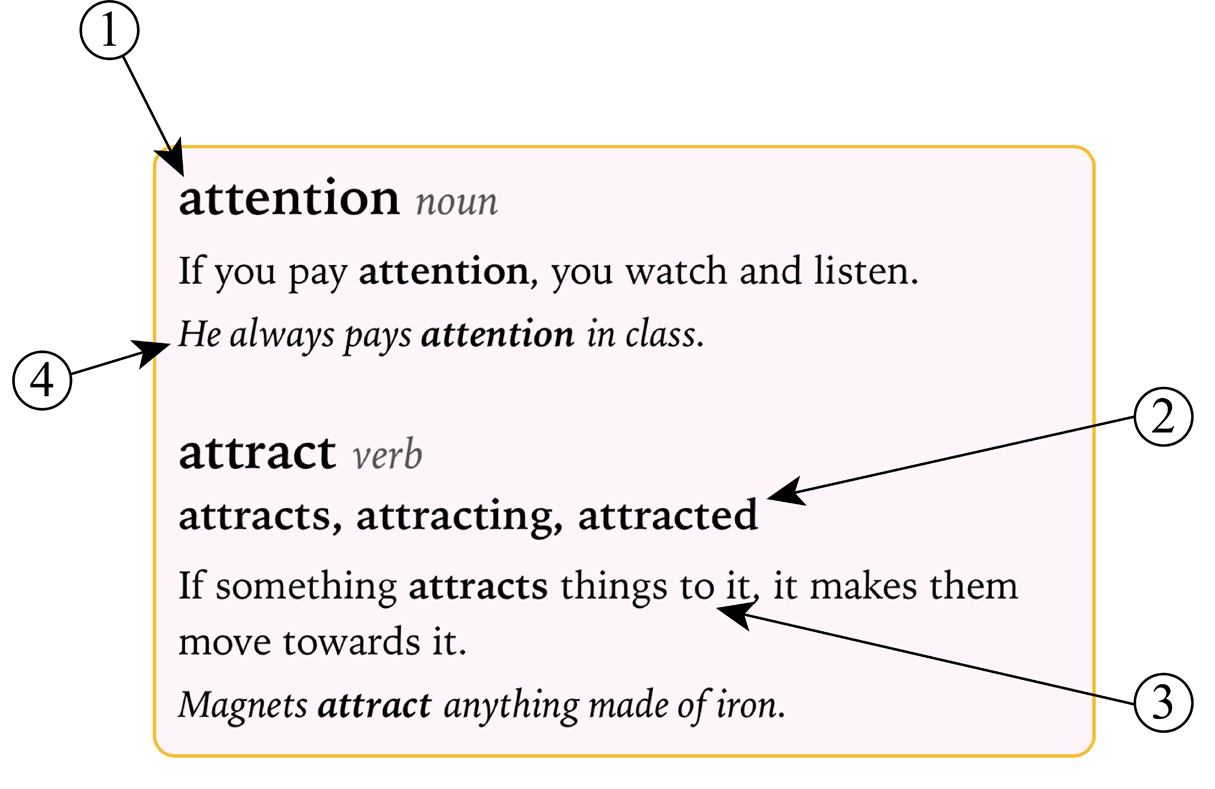
5. You can see if a word has more than one meaning.
6. You can see if a word is a noun, verb or adjective. Some words can be used in more than one way.
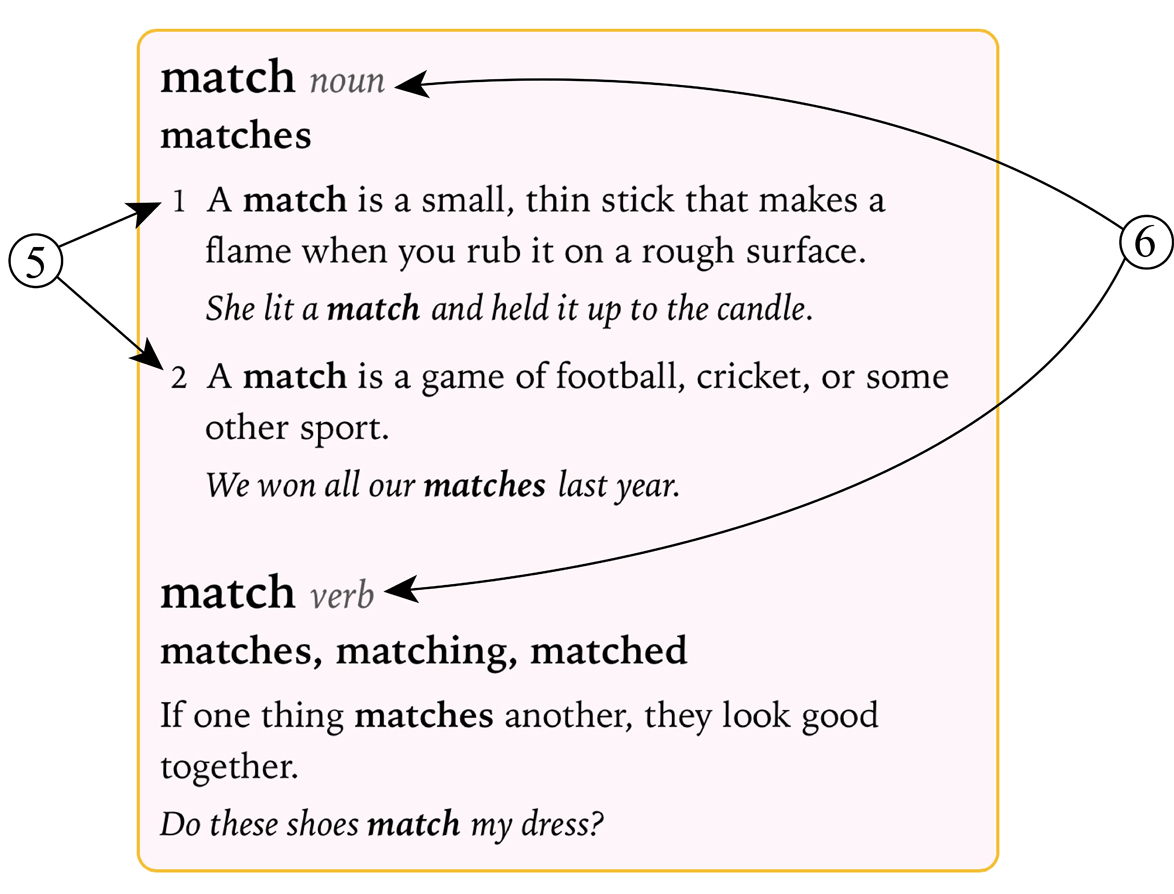
How words work
Nouns
A noun is a word that is used for talking about a person or thing.
arm noun
bird noun
car noun
If you have more than one of the thing, you use the word that ends in –S.
arms
Some words have special endings, or different spellings, when there is more than one.
child ➔ children
Adjectives
An adjective is a word like “big” or “beautiful” that tells you more about a person or thing.
happy adjective
wild adjective
wet adjective
Adjectives can be used in different ways.
happier, happiest
wilder, wildest
wetter, wettest
Verbs
A verb is a word like “sing”, “feel” or “eat” that you use for saying what someone or something does.
eat verb
cry verb
talk verb
Verbs can be used in different ways.
eats, eating, ate, eaten
cries, crying, cried
talks, talking, talked
Verbs can be used to talk about things that you are doing now.
He teaches people how to play the piano.
He is in the school football team.
They can be used to talk about things that you did in the past.
She took the plates into the kitchen.
She talked to him on the phone.
They can also be used to talk about things that you will do in the future.
Mum will be angry.
Our teacher will give the prizes to the winners.
We’ll come along later.
Tips to help you become a super speller!
When you have found a word you need in the dictionary, try to learn how to spell it using the “Look, Say, Cover, Write, Check” strategy:
Look at the word carefully. Look at its shape and length. Look at the letters in it to see if there are any letter patterns that might help you remember how to spell it in future, for example, bright, light, tight. Say the word out loud. Think about how the word sounds! Can you spell a word that sounds like it? Does your word have a similar sound pattern in it? Sound out the word and try to spell it. Cover the word up so you cannot see it. Write the word down without looking at it in the dictionary. As you do this, think about how the word looks! Does it look right? Is it the right shape? Is it the right length? Check that you have written it correctly.Explore further at www.collins.co.uk/homeworkhelp for games, activities and extra support for parents and children.
Aa
abacus noun abacuses
An abacus is a frame with beads that move along pieces of wire. It is used for counting.
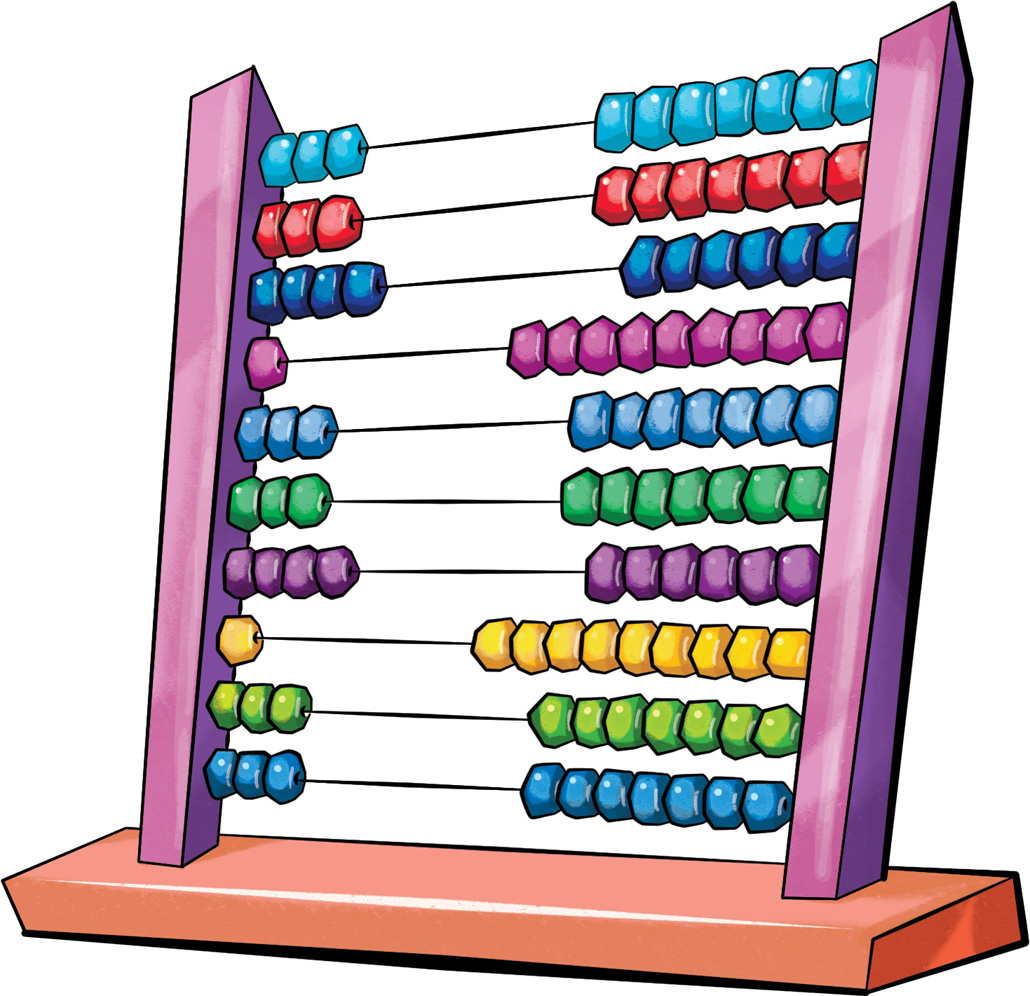
able adjective
If you are able to do something, you know how to do it.
She is able to swim.
about
1 About means to do with.
This book is about history.
2 About also means near to something.
His grandfather is about 80 years old.
above
If something is above another thing, it is over it or higher than it.
Lift the ball above your head.
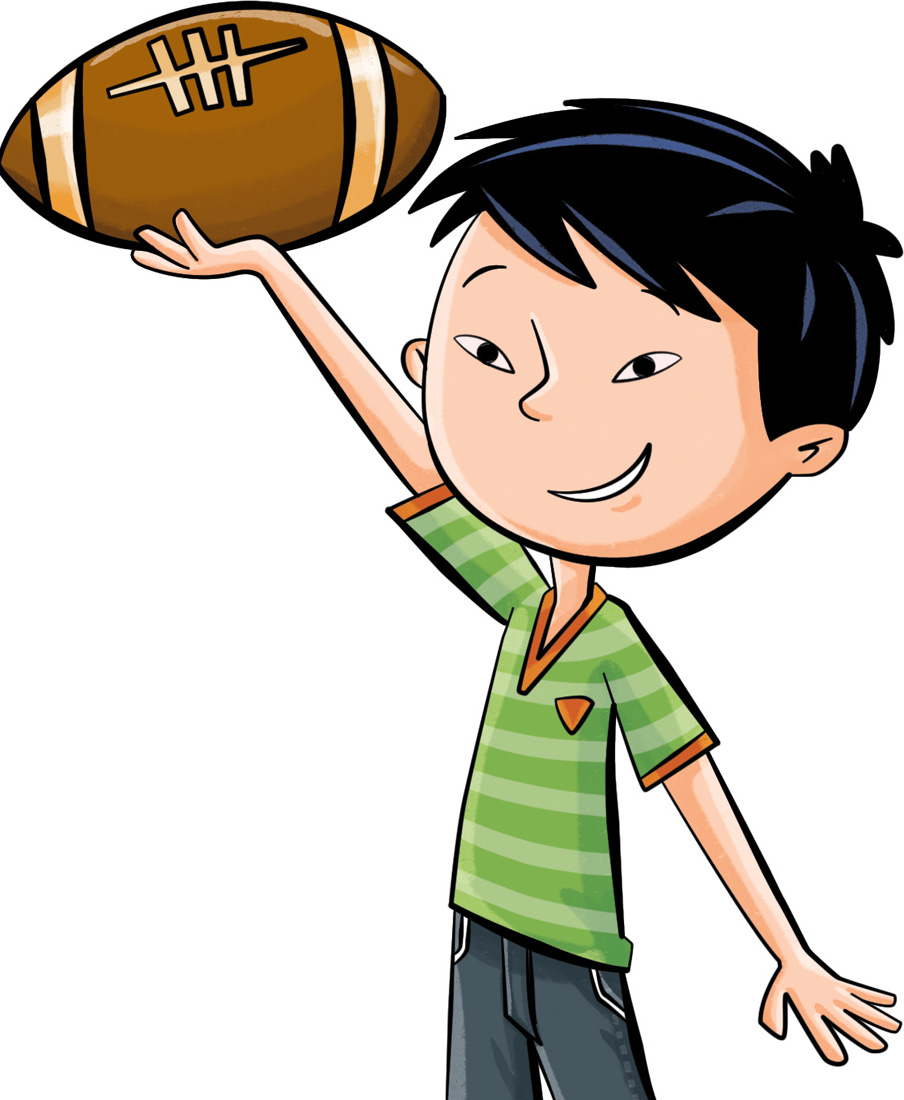
accident noun accidents
1 An accident is something nasty that happens, and that hurts someone.
He broke his leg in a car accident.
2 If something happens by accident, you do not expect it to happen.
I dropped a cup by accident.
ache verb aches, aching, ached
If a part of your body aches, you feel a steady pain there.
My leg aches a lot.
acorn noun acorns
An acorn is the seed of an oak tree.
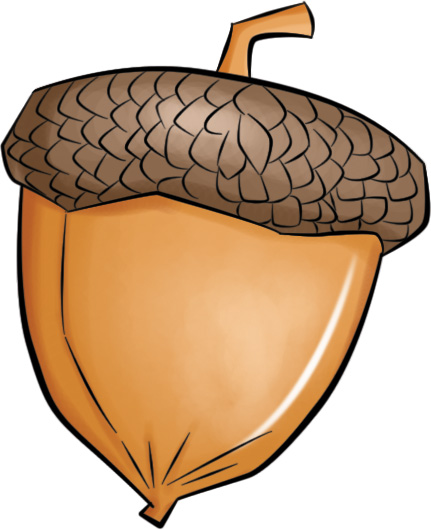
across
If someone goes across a place, they go from one side of it to the other.
She walked across the road.
act verb acts, acting, acted
1 When you act, you do something.
The police acted quickly to stop the fight.
2 If you act in a play or film, you pretend to be one of the people in it.
active adjective
Someone who is active moves around a lot.
My grandmother is very active for her age.
add verb adds, adding, added
1 If you add one thing to another, you put it with the other thing.
Add the water to the flour.
2 If you add numbers together, you find out how many they make together.
Add three and six.
address noun addresses
Your address is the name of the place where you live.
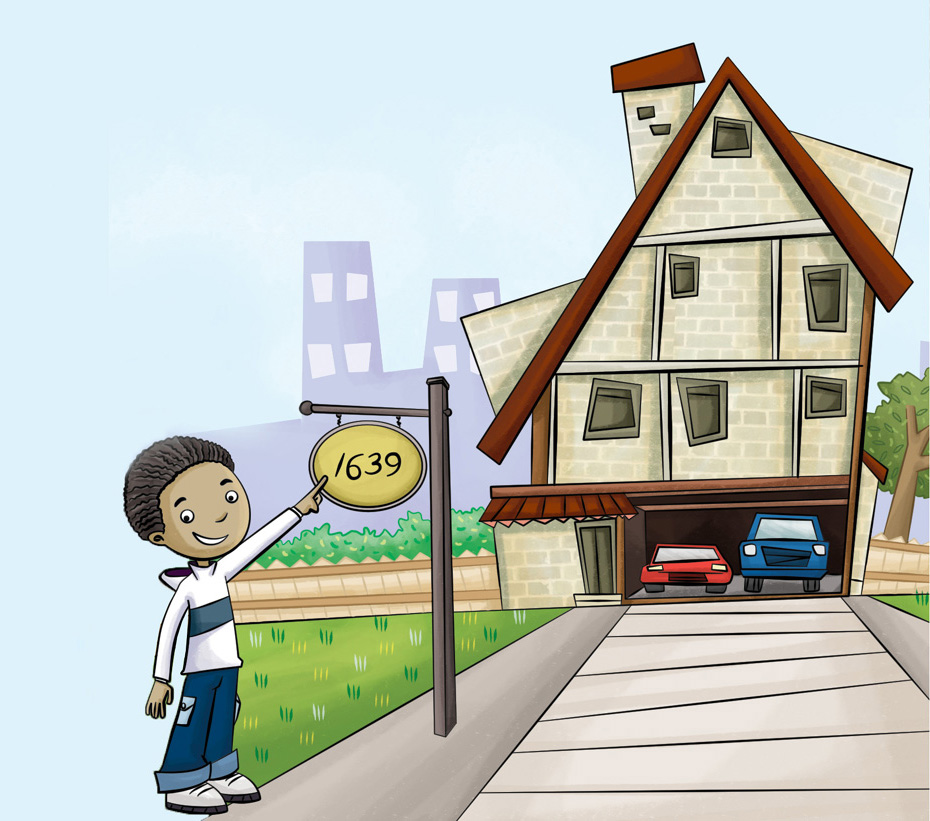
adjective noun adjectives
An adjective is a word like “big” or “beautiful”, that tells you more about a person or thing.
admire verb admires, admiring, admired
If you admire something, you like it and think that it is very nice or very good.
I admired his painting.
adopt verb adopts, adopting, adopted
If you adopt another person’s child, you take them into your own family as your son or daughter.
adult noun adults
An adult is a person who is not a child anymore.

adventure noun adventures
An adventure is something exciting which you do, or which happens to you.
He wrote a book about his adventures in the jungle.
adverb noun adverbs
An adverb is a word like “slowly”, “now”, or “very” that tells you about how something is done.
aeroplane noun aeroplanes
An aeroplane is a large vehicle with wings and engines that flies through the air.

afraid adjective
If you are afraid, you are frightened because you think that something bad will happen to you.
I am not afraid of the dark.
after
1 If something happens after another thing, it happens later than it.
I watched television after dinner.
2 If you go after a person or thing, you follow them or chase them.
They ran after her.
afternoon noun afternoons
The afternoon is the part of each day between twelve noon and about six o’clock.
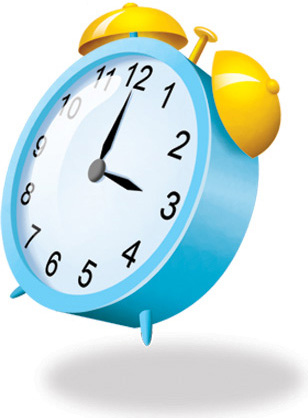
again
If something happens again, it happens another time.
We went to the park again yesterday.
against
1 If something is against another thing, it is touching it.
He leaned against the wall.
2 If you play against someone in a game, you try to beat them.
The two teams played against one another.
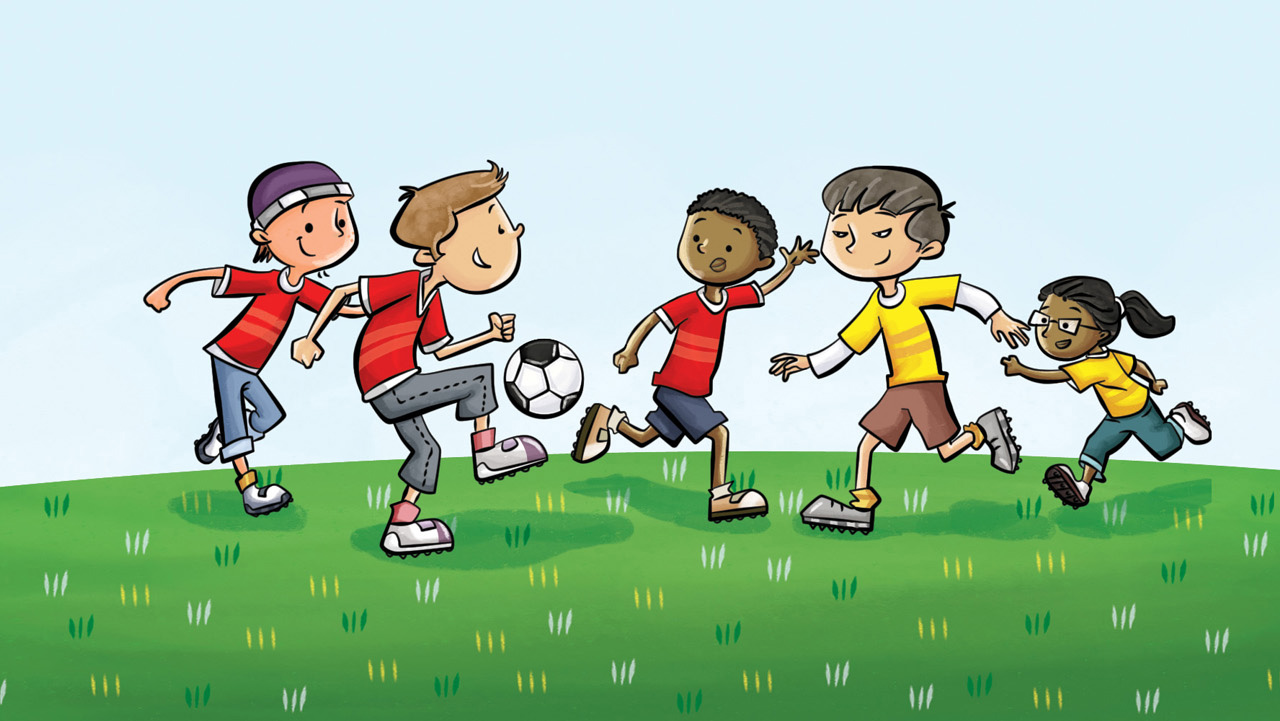
age noun ages
Your age is the number of years that you have lived.
ago
You use ago to talk about a time in the past.
She left two weeks ago.
agree verb agrees, agreeing, agreed
If you agree with someone, you think the same as they do about something.
I agree with you about him.
ahead
Someone who is ahead of another person is in front of them.
My brother ran ahead of us.
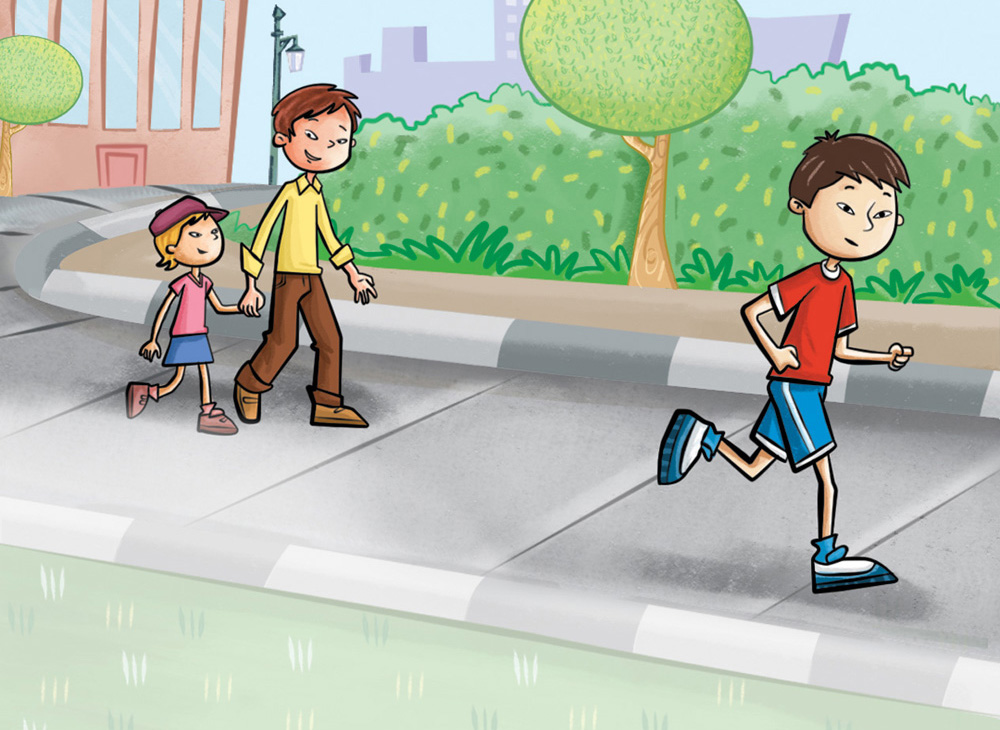
air noun
Air is the mixture of gases all around us that we breathe.
I opened the window and let in some air.
aircraft noun aircraft
An aircraft is any vehicle which can fly.
airport noun airports
An airport is a place where aeroplanes fly from and land.
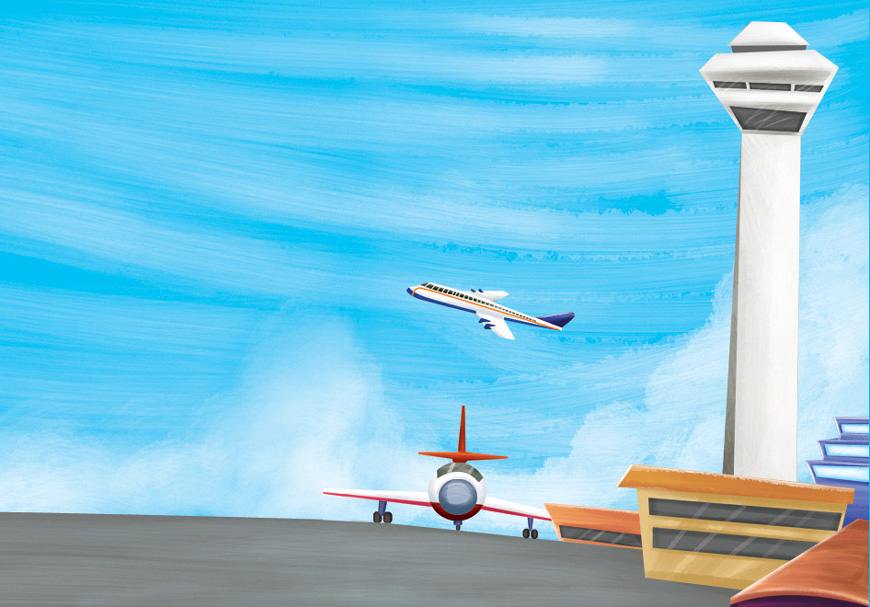
alarm noun alarms
An alarm is a piece of equipment that warns you of danger by making a noise.
The car alarm woke us up.
alien noun aliens
In stories and films, an alien is a creature from another planet.
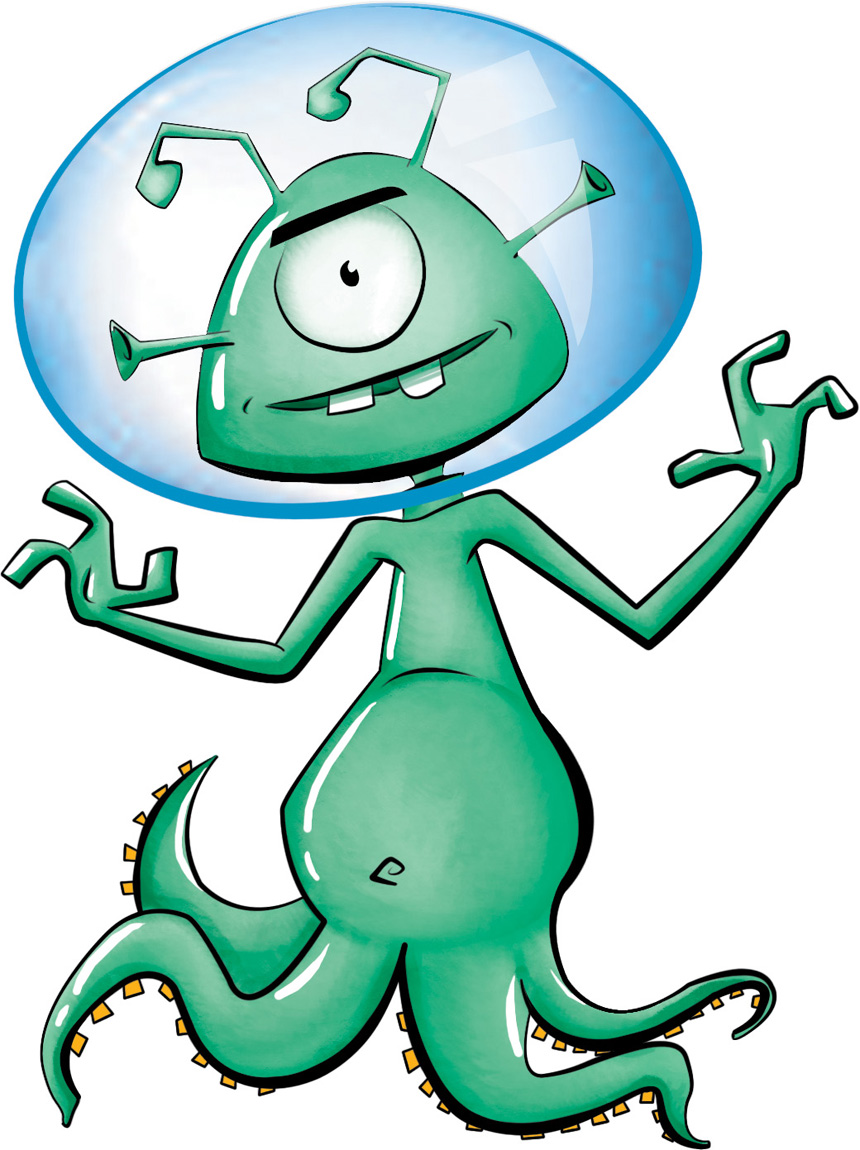
alike adjective
If people or things are alike, they are the same in some way.
The two cats looked alike.
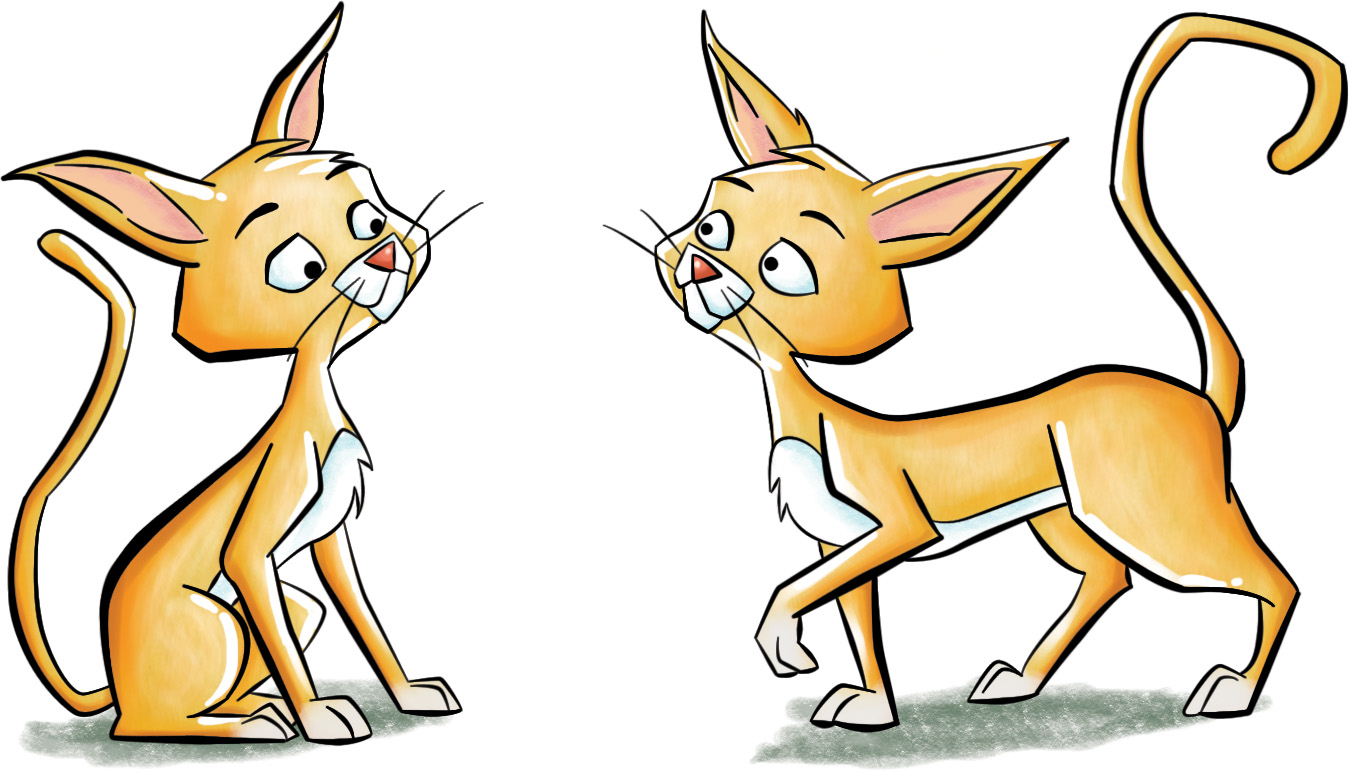
alive adjective
If a person, an animal or a plant is alive, they are living and not dead.
all
You use all to talk about everything, everyone, or the whole of something.
Did you eat all of it?
alligator noun alligators
An alligator is a large reptile with a long body, a long mouth and sharp teeth. Alligators’ mouths are in the shape of a letter U.
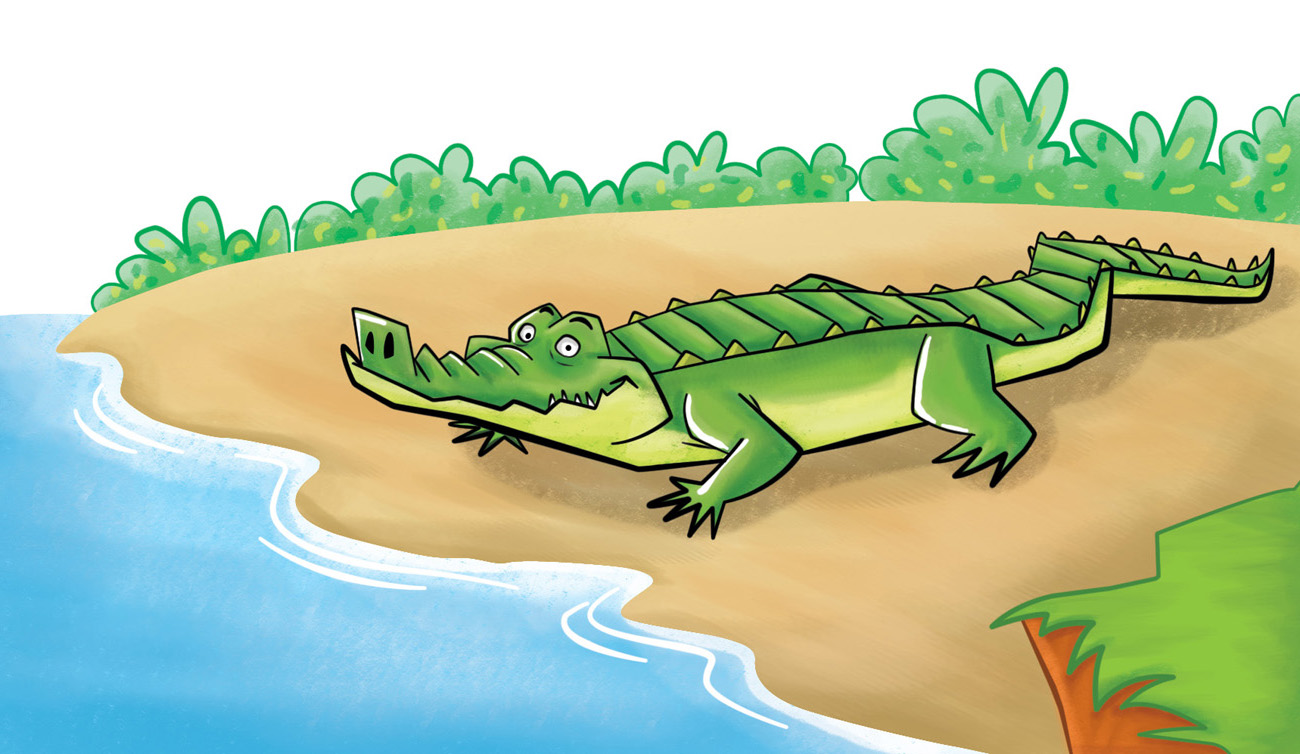
allow verb allows, allowing, allowed
If you allow someone to do something, you let them do it.
Mum allowed us to go out and play.
all right or alright adjective
If you say that something is all right, you mean that it is good enough.
I thought the film was all right.
almost
Almost means very nearly.
I almost missed the bus.
alone adjective
When you are alone, you are not with any other people.
She was alone in the room.
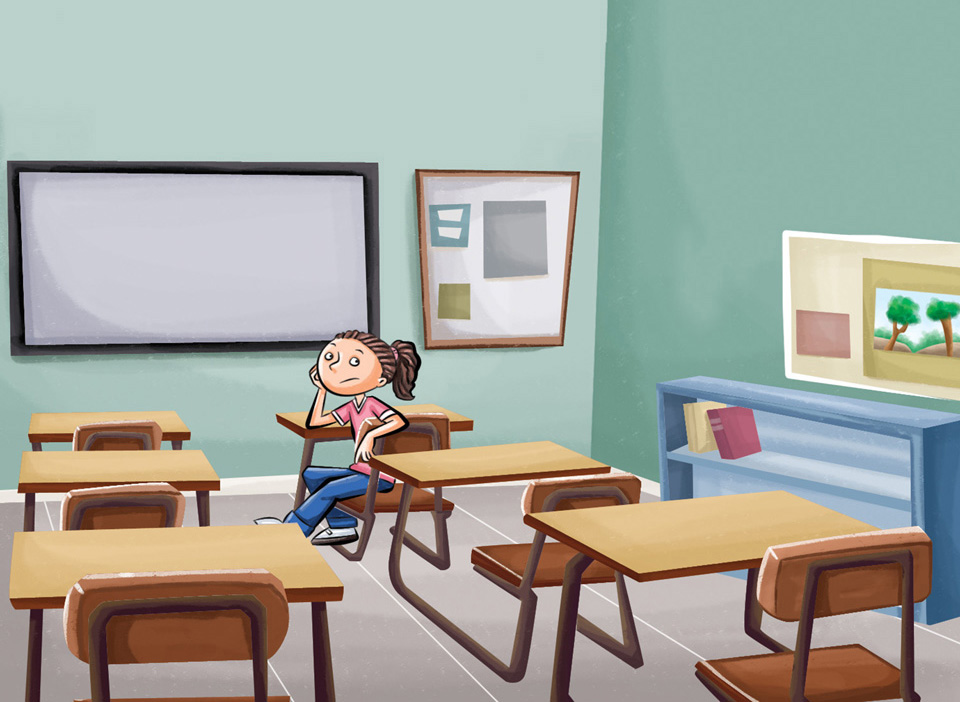
along
1 If you walk along a road or other place, you move towards one end of it.
We walked along the street.
2 If you bring something along when you go somewhere, you bring it with you.
She brought a present along to the party.
aloud
When you read or talk aloud, you read or talk so that other people can hear you.
She read the story aloud to us.
alphabet noun alphabets
An alphabet is a set of letters that is used for writing words. The letters are arranged in a special order.
A is the first letter of the alphabet.
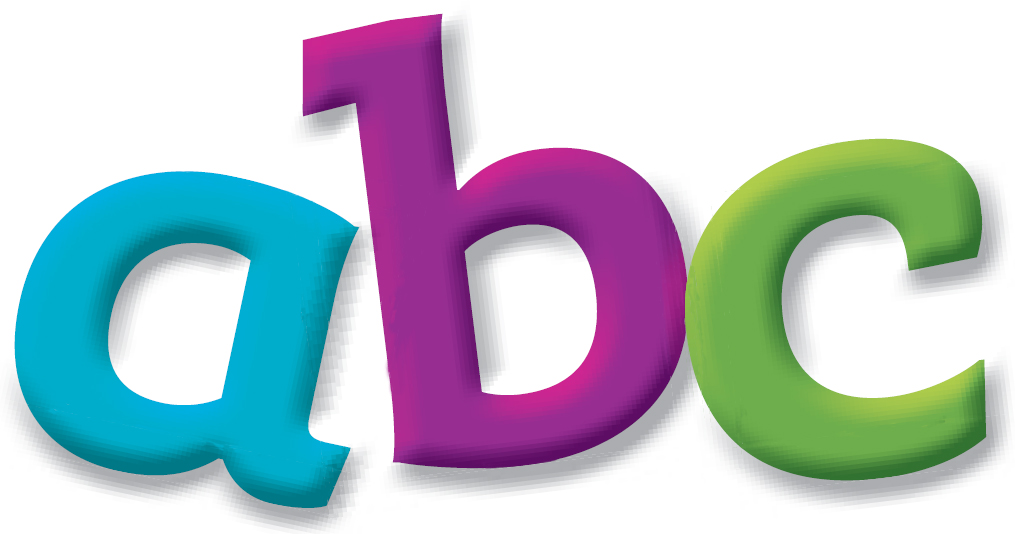
already
You use already to show that something has happened before the present time.
She is already here.
also
You use also to give more information about something.
I’m cold, and I’m also hungry.
always
If you always do something, you do it every time or all the time.
She’s always late for school.
am

I am six years old.
amazing adjective
You say that something is amazing when it is a surprise and you like it.
We had an amazing holiday.
ambulance noun ambulances
An ambulance is a vehicle for taking people to hospital.
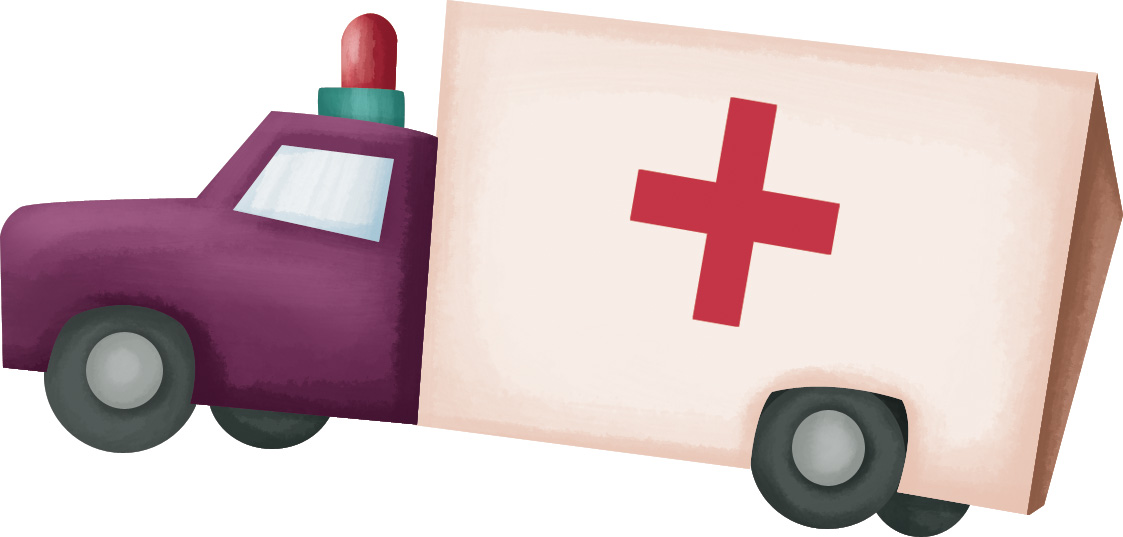
amount noun amounts
An amount of something is how much there is of it.
We only have a small amount of food.
amphibian noun amphibians
An amphibian is an animal that lives both on land and in water, for example a frog or a toad.
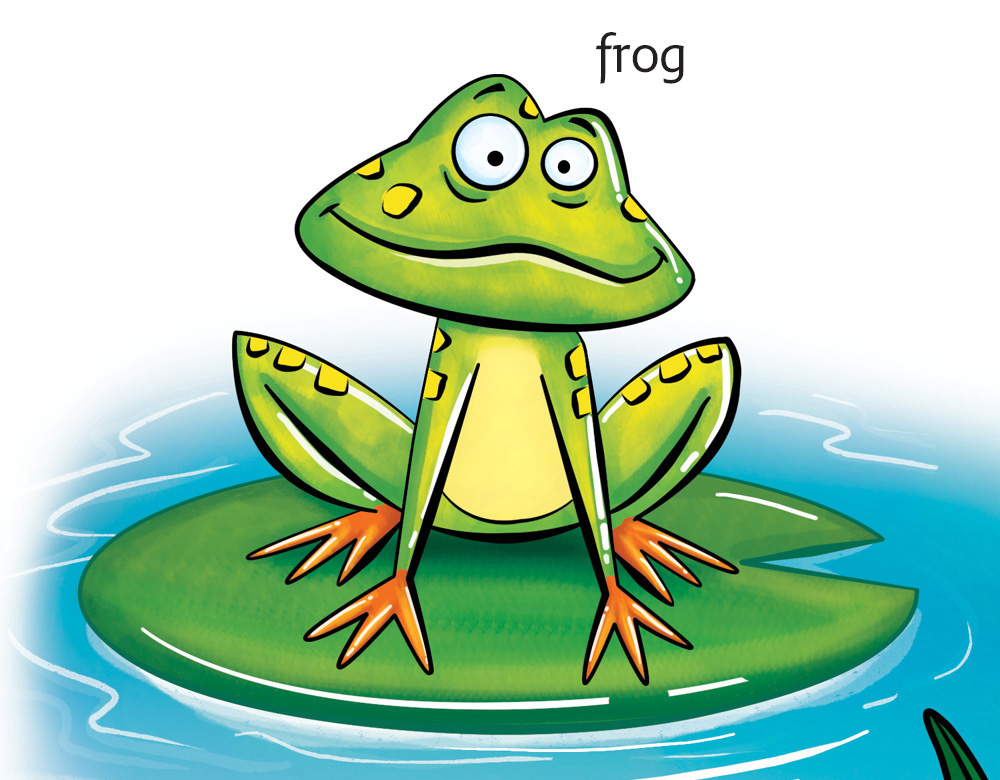
ancient adjective
Ancient means very old, or from a long time ago.
They lived in an ancient castle.
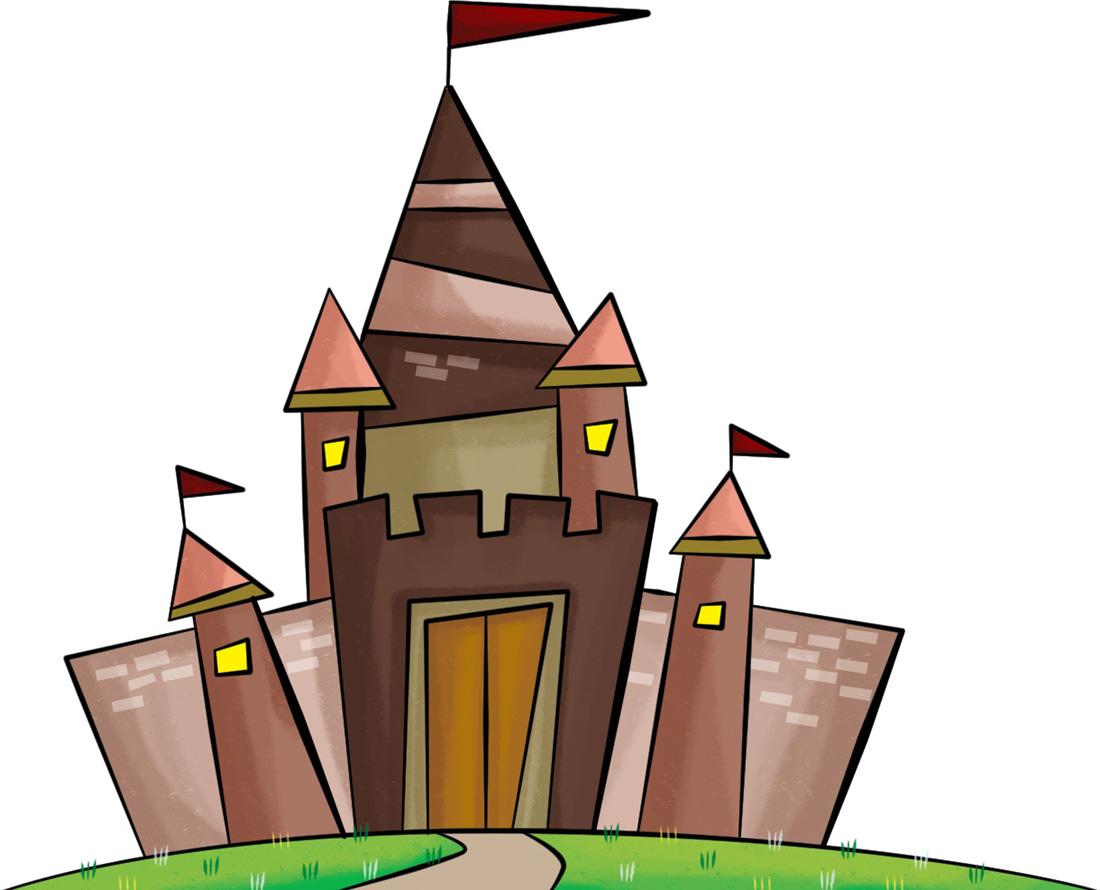
angry adjective angrier, angriest
When you are angry, you feel very upset about something.
She was angry at her brother for breaking the window.
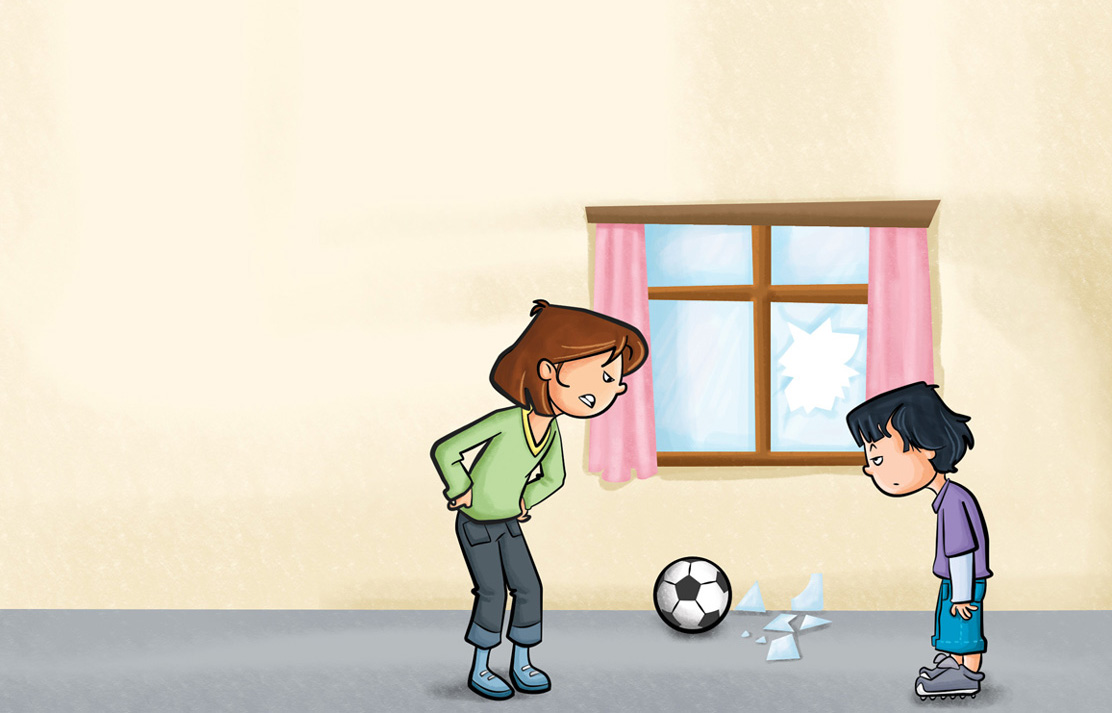
animal noun animals
An animal is any creature that is alive, but not a plant or a person.
ankle noun ankles
Your ankle is the part of your body where your foot joins your leg.
I fell and twisted my ankle.
annoy verb annoys, annoying, annoyed
If something annoys you, it makes you angry and upset.
It annoys me when people are rude.
another
You use another to mean one more.
She ate another cake.
answer verb answers, answering, answered
If you answer someone, you say something back to them.
She said hello, but he didn’t answer.
ant noun ants
Ants are small insects that live in large groups.
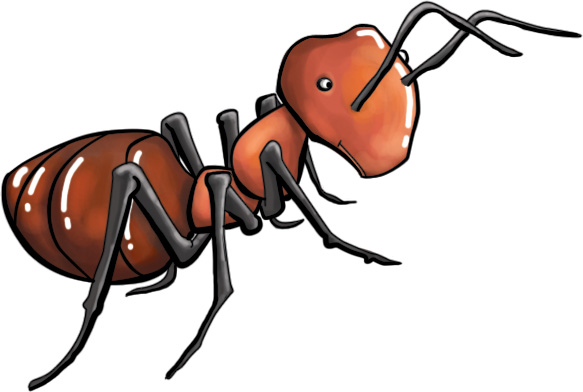
antelope noun antelopes
An antelope is an animal that looks like a deer.
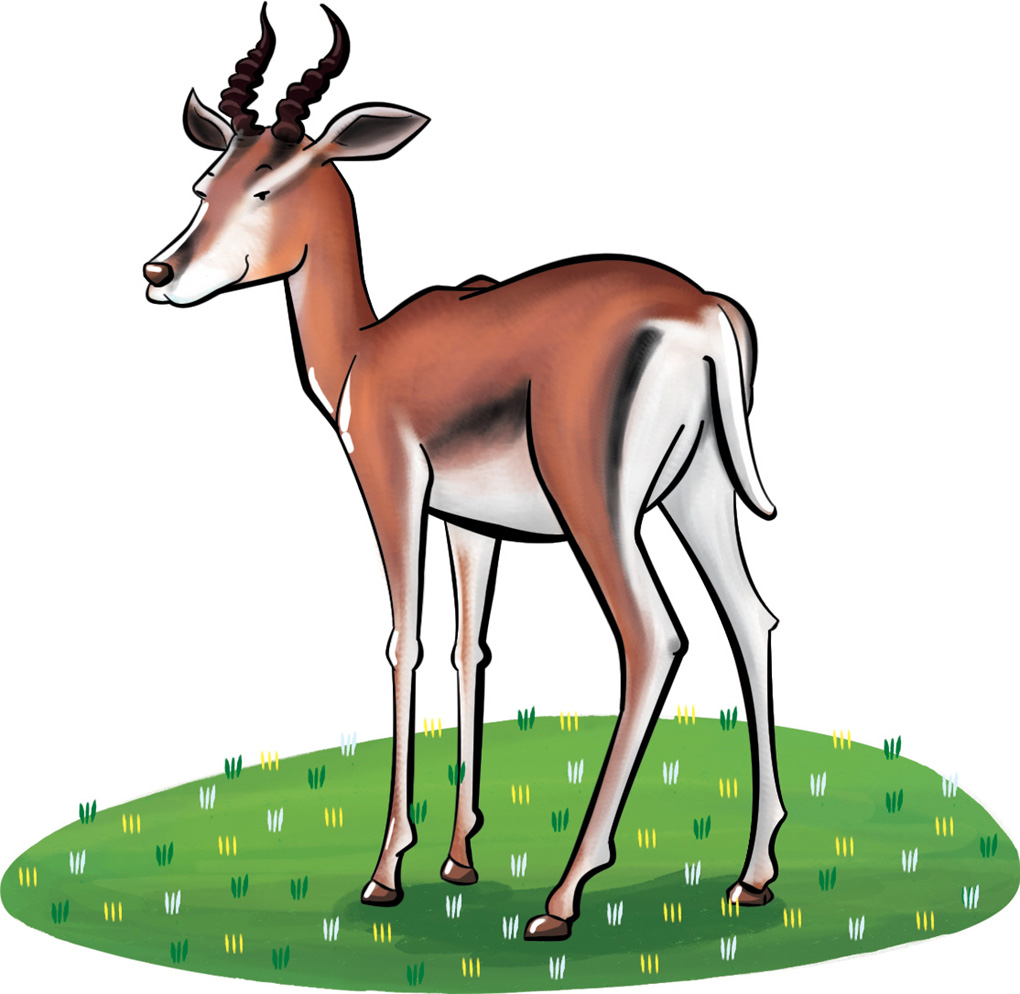
any
1 You use any to mean some of a thing.
Is there any juice left?
2 You also use any to show that it does not matter which one.
Take any book you want.

anybody
You use anybody to talk about a person, when it does not matter which one.
Is there anybody there?
anyone
You use anyone to talk about a person, when it does not matter who.
Don’t tell anyone.
anything
You use anything to talk about a thing, when it does not matter which one.
I can’t see anything.
anywhere
You use anywhere to talk about a place, when it does not matter which one.
You can go anywhere you like.
apart
1 When things are apart, there is a space or a distance between them.
The desks are too far apart.
2 If you take something apart, you take it to pieces.
He took his bike apart.
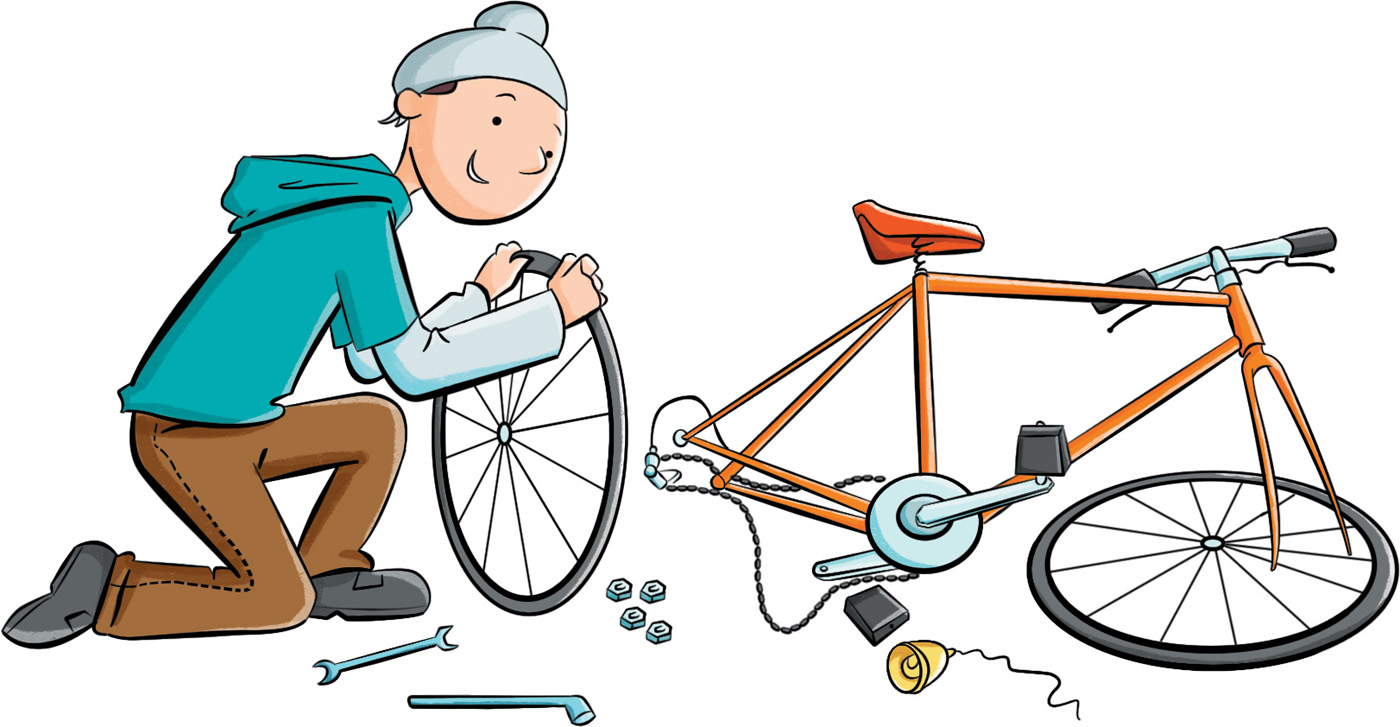
ape noun apes
An ape is an animal like a large monkey with long, strong arms and no tail.
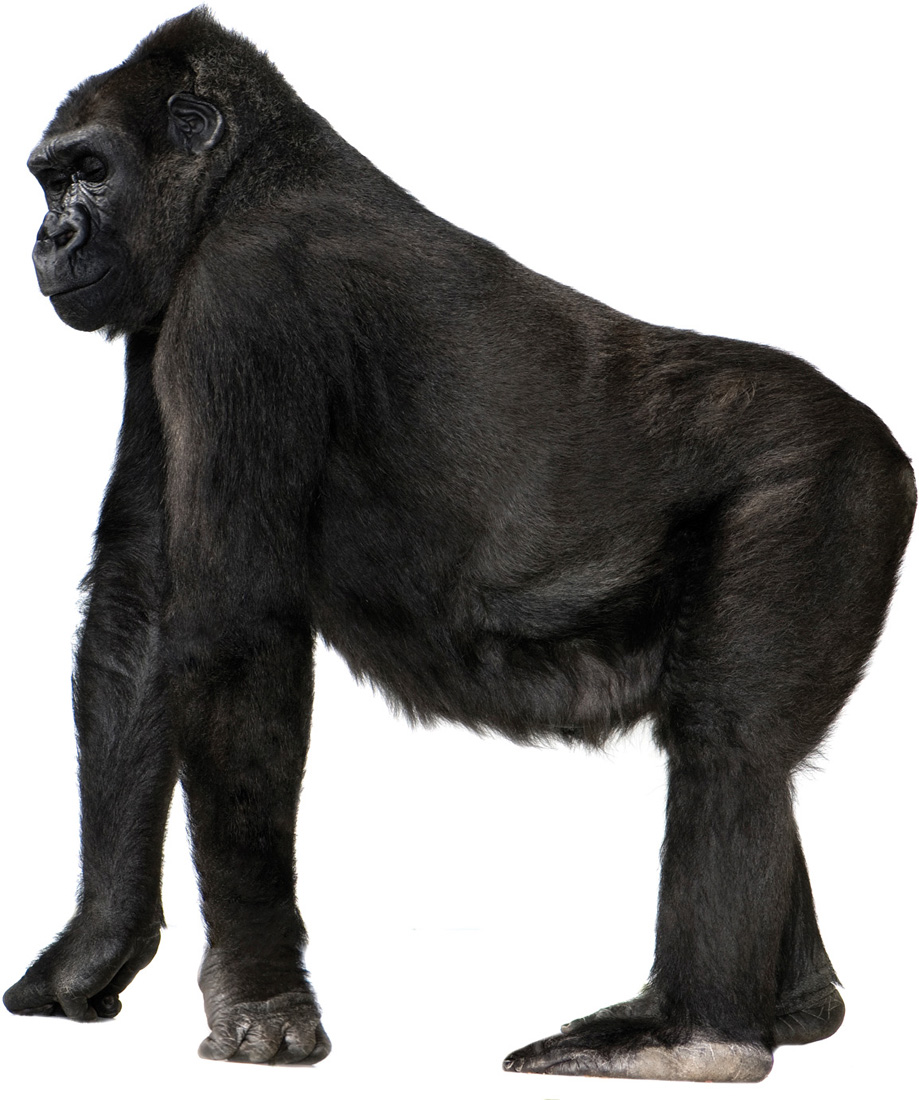
apologize or apologise verb apologizes, apologizing, apologized
When you apologize, you say that you are sorry for something you have said or done.
He apologized for breaking the window.
appear verb appears, appearing, appeared
When something appears, it becomes possible to see it.
The sun appeared from behind the clouds.
apple noun apples
An apple is a firm, round fruit with green, red, or yellow skin.
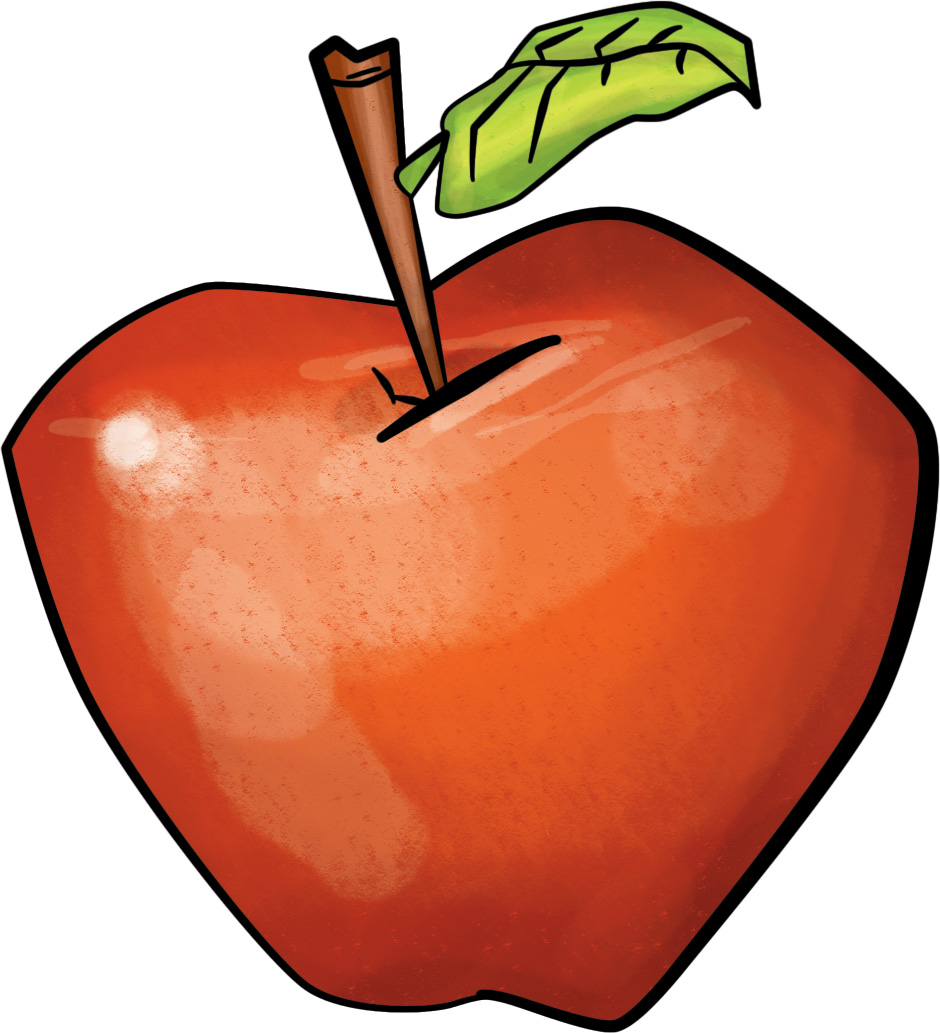
April noun
April is the month after March and before May. It has 30 days.
His birthday is in April.
apron noun aprons
An apron is a large piece of cloth that you wear over your other clothes to keep them clean when you are cooking or painting.
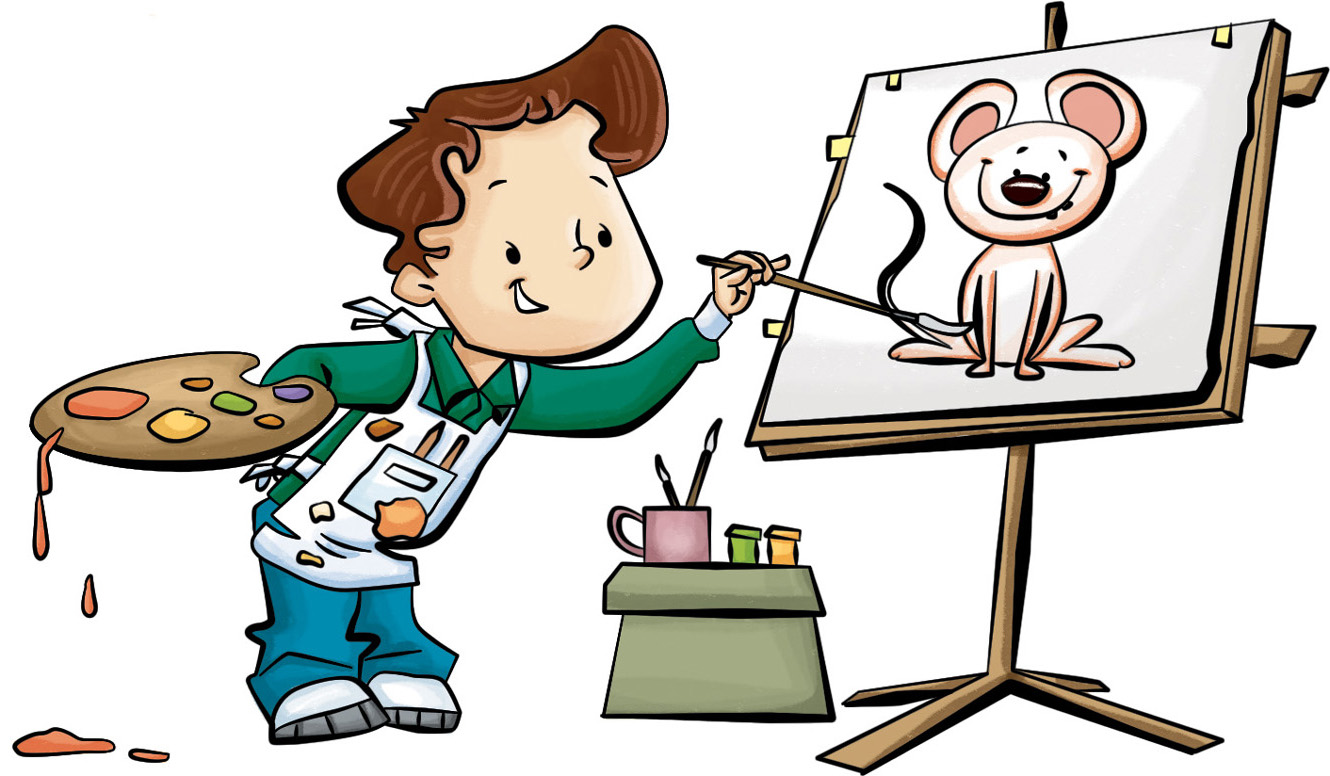
are

They are both in my class.
area noun areas
An area is a part of a place.
We live in an area near the park.
aren’t
Aren’t is short for are not.
My friends aren’t here today.
argue verb argues, arguing, argued
If you argue with someone, you talk about something that you do not agree about.
We argued about where to go.
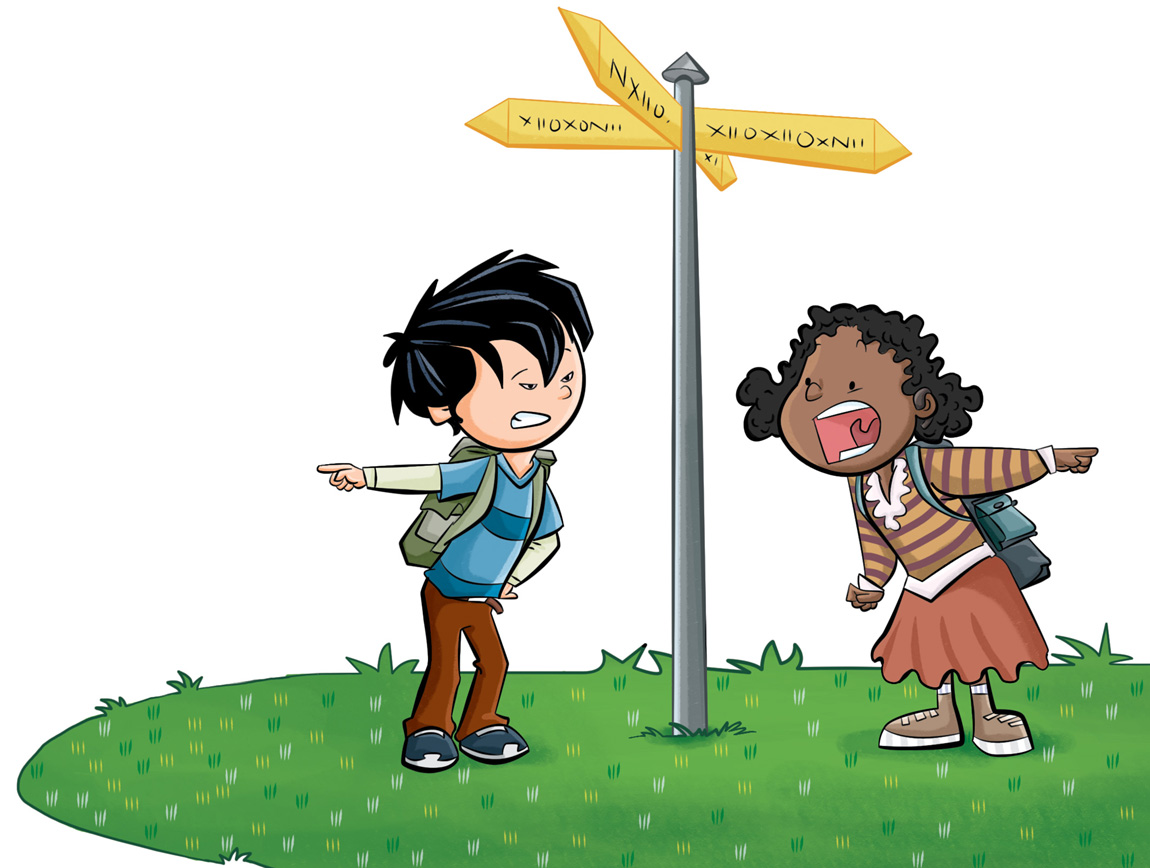
argument noun arguments
If you have an argument with someone, you talk about something that you do not agree about.
She had an argument with another girl.
arm noun arms
Your arms are the two parts of your body between your shoulders and your hands.
She stretched her arms out.
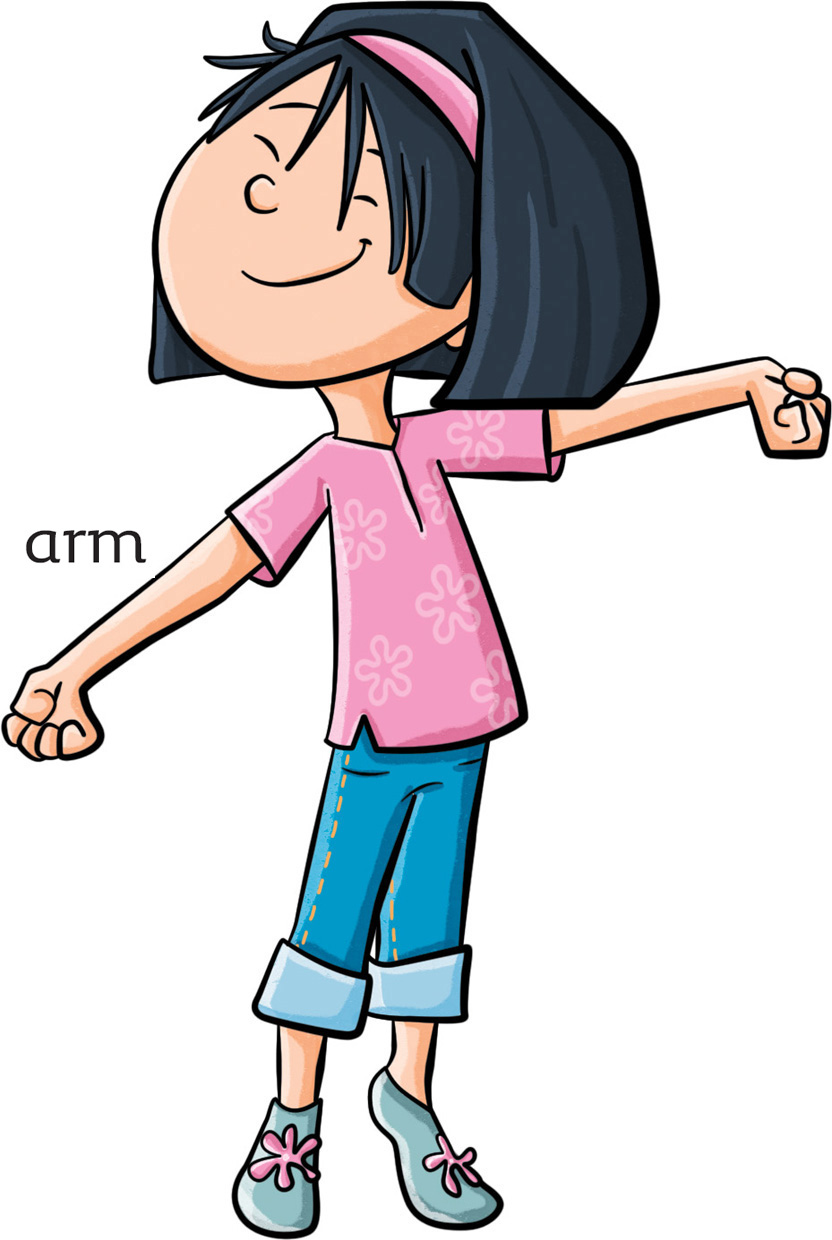
armchair noun armchairs
An armchair is a big comfortable chair with parts on the sides for you to put your arms on.

army noun armies
An army is a large group of soldiers who fight in a war.
around
1 Around means in a circle.
There were lots of people around her.
2 You also use around to say that something is in every part of a place.
His toys lay around the room.
3 Around also means near to something.
We left around noon.
arrange verb arranges, arranging, arranged
1 If you arrange something, you make plans for it to happen.
We arranged a party for her birthday.
2 If you arrange things somewhere, you put them in a way that looks tidy or pretty.
He arranged the books in piles.
arrive verb arrives, arriving, arrived
When you arrive at a place, you get there.
We arrived ten minutes late.
arrow noun arrows
1 An arrow is a long, thin stick with a sharp point at one end.
The soldiers used bows and arrows.
2 An arrow is also a sign that shows you which way to go.
Follow the arrows along the path.
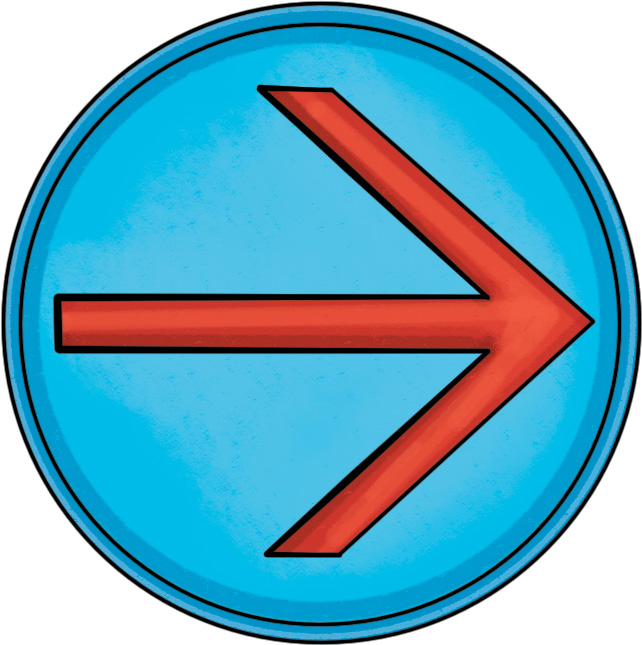
art noun
Art is something that someone has made for people to look at, for example a painting or drawing.
ask verb asks, asking, asked
1 If you ask someone a question, you say that you want to know something.
I asked him what his name was.
2 If you ask for something, you say that you want it.
She asked for some sweets.
asleep adjective
If you are asleep, you are sleeping.
The cat was asleep under the tree.
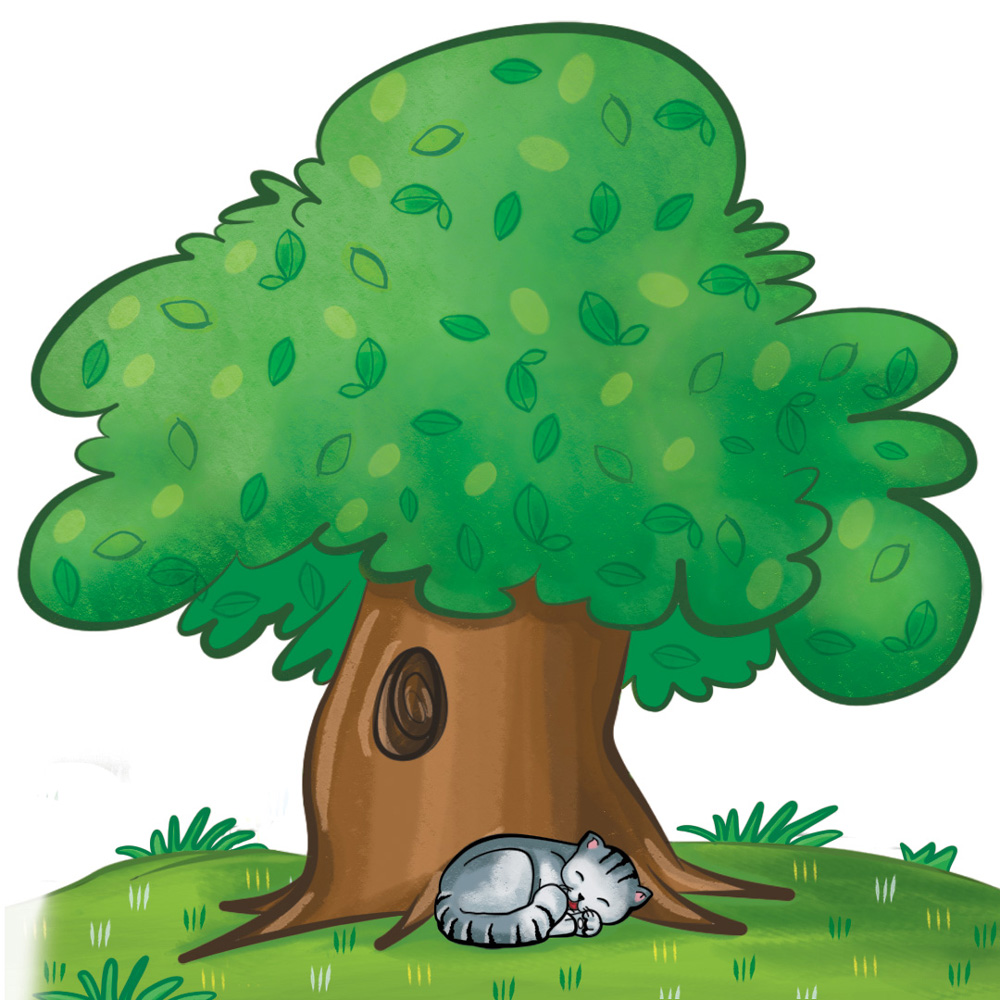
assembly noun assemblies
An assembly is a group of people who meet together.
We were late for school assembly.
assistant noun assistants
An assistant is someone who helps another person in their work.
astronaut noun astronauts
An astronaut is a person who travels in space.

ate

He ate three apples.
atlas noun atlases
An atlas is a book of maps.
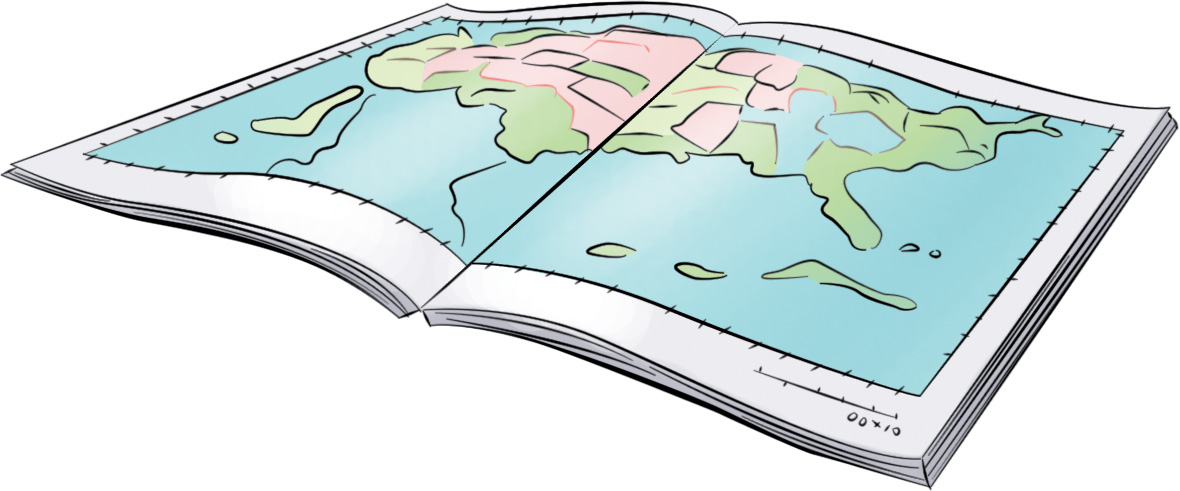
attack verb attacks, attacking, attacked
If someone attacks another person, they try to hurt them.
attention noun
If you pay attention, you watch and listen.
He always pays attention in class.
attract verb attracts, attracting, attracted
If something attracts things to it, it makes them move towards it.



